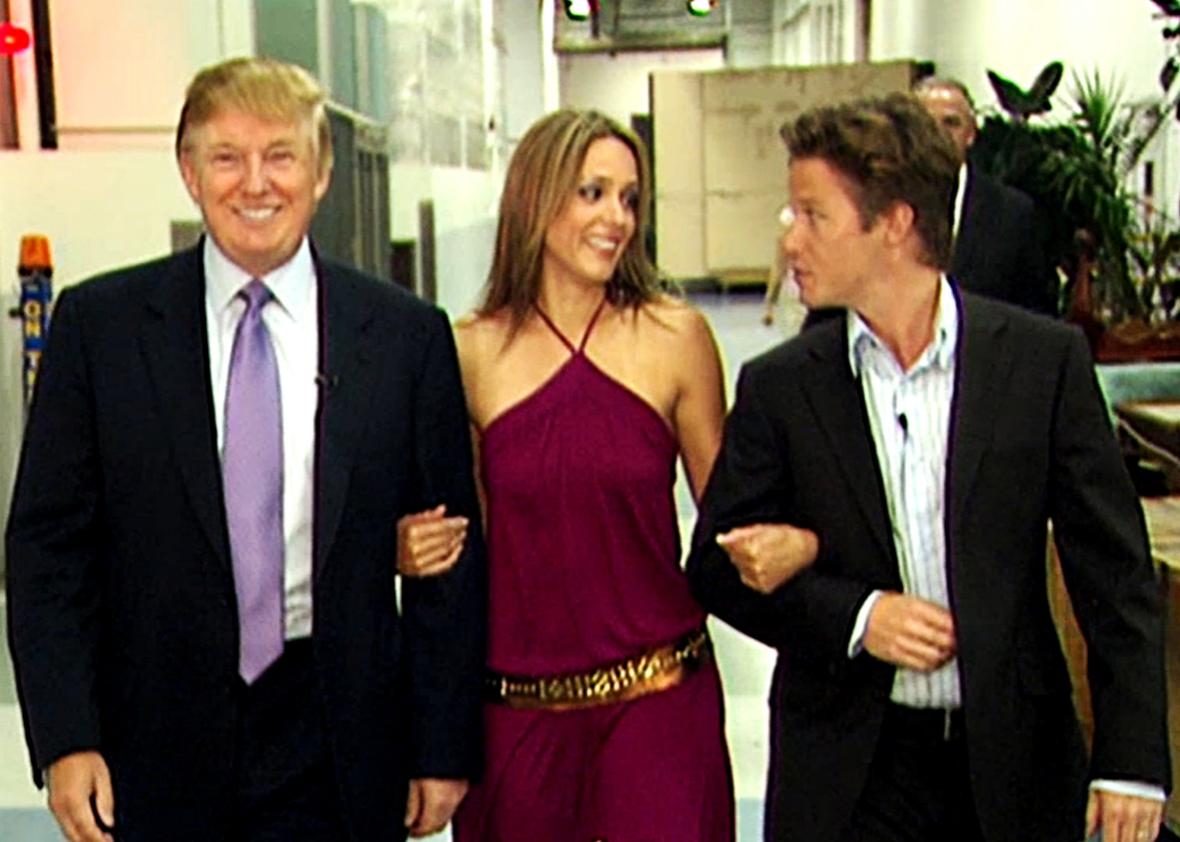Last week, tapes surfaced of Donald Trump boasting in 2005 about grabbing women by their genitals, without their consent. As many legal observers were quick to point out, this was more than just “lewd talk”—Trump was bragging about sexual assault. Since those comments have surfaced, and after Trump batted them away as mere talk at the debate last week, insisting he had never once grabbed a woman without her consent, accusers have been quick to come forward with multiple damning reports of unwanted kissing, touching, and groping from the Republican nominee. It now appears that Trump is exactly what he was angling to look like: a serial predator.
One question that keeps arising is whether Trump’s statements to Billy Bush in 2005 represent any kind of legally binding admission of legal wrongdoing. Are they in themselves evidence of Trump’s abuse?
I asked several prominent legal authorities whether Trump’s statements alone represent any kind of legal admission of wrongdoing for purposes of a future lawsuit. My suspicion was that mere boasting attached to no victim was inadmissible. Here are their answers:
Jeannie Suk Gersen, who teaches criminal law at Harvard and wants to clarify that she in no way defends Trump, puts it this way:
Those statements alone aren’t enough because, as you say, they are too generic. But put together with an actual person who says he did that to her, without consent, that could enable a prosecutor to bring charges. But just her word could be enough for charges of unwanted sexual touching, even without the video or audio, though the recording would be evidence. (Defense would try to get it excluded as prior bad act.) One note is that because he said they “let” him do it, that could mean he thought (even if erroneously) that he had their consent to kiss or grab, and that could be used to claim mens rea is lacking.
Wendy Kaminer, who is a widely published author, lawyer, and civil libertarian, writes:
I don’t see how his statement alone could possibly be a basis for prosecution—unless we criminalize bragging, which I hope your colleagues are not advocating. (Trump might also characterize his “boasts” as marketing, since aggressive sexism seems to be part of his brand.) But here’s a question: If a particular woman came forward with particular allegations of assault, might his remarks be admissible in a civil action or criminal prosecution? I don’t think there’s any allegation that the tape was made in violation of his privacy or distributed illegally. I’d ask a defense attorney or civil litigator for a definitive answer.
Shima Baradaran Baughman, who teaches criminal law and criminal procedure at the University of Utah, adds the following:
Sometimes a brag of criminal wrongdoing can be used against a defendant, and other times it can’t. In the clear cases where statements have been used, they were recorded by police who had a warrant or were made to police to withstand the hearsay evidentiary bars. (My favorite is a drug dealer who, when asked during booking if he had any needles, told the officer, “I don’t do drugs; I just sell them.”) The Trump statements are difficult to admit under evidentiary rules because there is not a specific victim referenced. So on their own, Trump’s statements to Billy Bush, while reprehensible, are not actionable without a named victim and more details of a specific crime.
The consensus view here seems to be that standing alone, nothing in Trump’s 2005 bus boast would likely be considered a legally admissible statement admitting a crime. But it’s useful to note—as lawyers for the New York Times did on Thursday—that it makes Trump’s recent claims that his character has been defamed by his accusers awfully hard to swallow.
